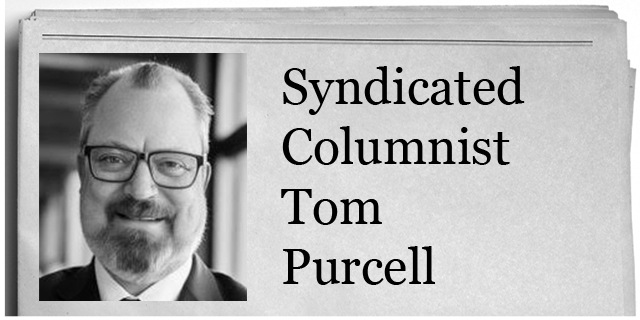Tom Purcell Column: What would Carson say
Published 8:30 am Wednesday, July 30, 2025
I wonder what Johnny Carson would say about the demise of late-night television.
Carson was genuine and funny — at his funniest when his monologues bombed.
On Bill Maher’s podcast, Jay Leno explained why he was so much better than today’s late-night comics:
Trending
“Carson had class. He was gracious. You never saw him angry. He never talked down to the audience. He was never mean — and that’s a form of humility.”
Carson told “60 Minutes” he avoided political and moral commentary that could divide his audience:
“Don’t they understand that’s not what I’m there for?” he said.
He believed he was there to serve and entertain us — to give us a respite from the miseries of daily life.
We rewarded him for his warm-hearted humor.
According to Medium, he drew up to 15 million viewers a night — the equivalent of 25 million today, when adjusted for the current U.S. population of 335 million.
Trending
Which brings us to the shriveled state of late-night television.
Stephen Colbert averages just 2 million viewers a night — enough to be the late-night No. 1 “leader.”
How did a left-leaning, lecturing moralist become No. 1?
It goes back to 2016.
At the time, Jimmy Fallon held the top spot with nearly 4 million viewers a night. Colbert was stuck in last place — No. 3 — with roughly half that audience.
Colbert was trying to be like Carson — likable, funny, a fantastic interviewer — but he came across as wooden, uneasy and out of place.
Then Donald Trump changed Colbert’s fortunes.
While a guest on “The Tonight Show” in September 2016, Trump allowed Fallon to tousle his hair.
Trump haters accused Fallon of “humanizing” Trump. The press and social media shredded him, causing his ratings to collapse.
Within a year, he fell from No. 1 to No. 4 — even behind Seth Meyers’ “Late Night” show.
Colbert clawed his way to No. 1 by going hard left — happily trading broad appeal for a narrow audience of mostly white, aging, urban elites who can’t get enough of his smug sarcasm.
Meanwhile, as viewers abandon late-night comics for podcasts, social media and streaming television, late-night ad revenue is tanking — from about $440 million in 2018 to $220 million in 2024.
Colbert brought in $120 million in 2018, but only $70 million last year.
Why?
A key reason, according to The Wall Street Journal, is that major brands want safe, broad-audience shows that don’t alienate half their customer base — you know, like Johnny Carson’s show.
Combine declining revenue with Colbert’s high production costs of more than $100 million, including his salary estimated at $15 million to $20 million, and you see why his show is losing $30 to $50 million a year.
He should consider himself lucky CBS didn’t cancel him sooner. After all, CBS axed James Corden in 2023 even though his “Late Late Show” was only losing $20 million a year.
I wonder what Johnny Carson — in his full Carnac the Magnificent regalia — might say about the sorry state of late-night television:
(Carnac holds a sealed envelope to his head.)
Carnac: “Genuinely funny jokes… a nightly escape from life’s troubles… and humble comedians who appeal to our common humanity.”
(Carnac rips open the envelope and reads the question inside.)
Carnac: “Name three things that no longer exist on late-night TV.”
See Tom Purcell’s syndicated column, humor books and funny videos featuring his dog, Thurber, at TomPurcell.com. Email him at Tom@TomPurcell.com.





